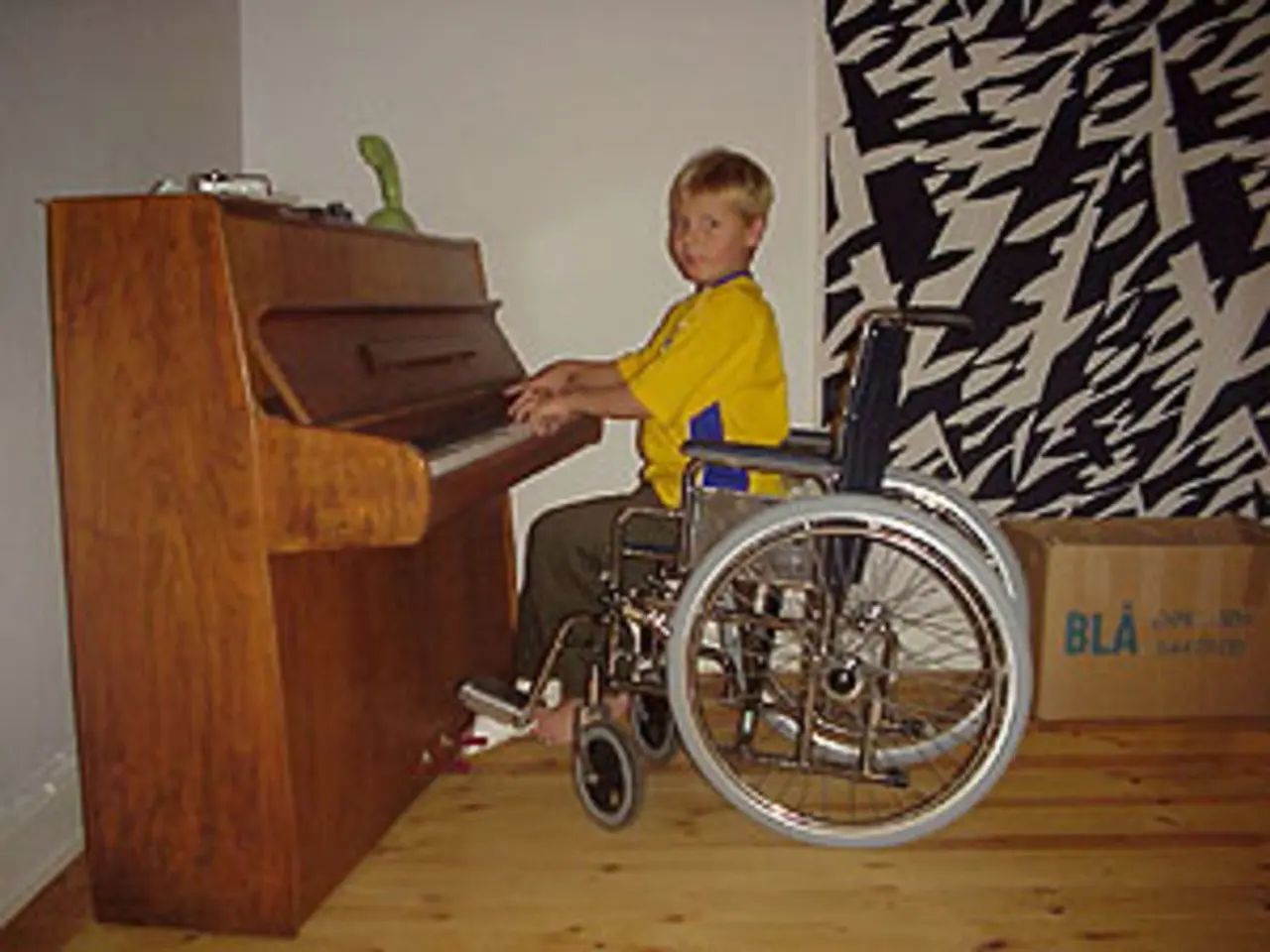Life Contentment Assessment among Autistic Adolescents with and without Intellectual Impairments
A recent study, aimed at comparing life satisfaction levels among autistic youth with and without intellectual disabilities, has provided valuable insights into the factors that influence satisfaction in these two groups. The study, which involved 134 participants, found that while life satisfaction did not significantly differ between the two groups, the factors influencing satisfaction varied across them.
The research, conducted primarily with participants from the United States and predominantly of White descent, used a self-report measure of life satisfaction, providing direct insight from autistic youth themselves. Parents of participants provided demographic information, reported on social participation, their own stress levels, and unmet service needs.
For autistic youth without intellectual disabilities, greater self-determination was associated with higher life satisfaction. In contrast, for those with intellectual disabilities, parental stress and unmet service needs had stronger associations with life satisfaction. Interestingly, autistic youth with intellectual disabilities reported slightly higher life satisfaction, though not statistically significant, compared to their counterparts without intellectual disabilities.
The study also highlighted the importance of social participation in enhancing life satisfaction, particularly for autistic youth with intellectual disabilities. This finding underscores the need for social enrichment activities, which can foster essential social skills, emotional well-being, and inclusion. Structured social skills groups, community and recreational activities, and comprehensive social skills interventions like the PEERS® program, which employs cognitive-behavioral techniques, are key components of such activities.
Moreover, the study emphasized the importance of mental health and stress reduction, particularly for autistic individuals without intellectual disabilities. Combining social support networks with interventions targeting perceived stress can mediate depressive symptoms and improve overall life satisfaction.
The findings also underscore the need for interventions that address cognitive aspects related to social understanding, such as Theory of Mind (ToM) training, embedded within broader social skills programs. Experiential learning activities like role-playing, social games, and feedback help autistic youth understand others’ perspectives and improve social cognition.
Lastly, the study highlighted the importance of family well-being, particularly in terms of parental resilience and life satisfaction. Psychological interventions that enhance parental resilience and life satisfaction can alleviate the negative impact of stigma associated with autism, indirectly benefiting the youth's environment and support system, which in turn improves outcomes for autistic children and adolescents.
In conclusion, effective interventions for autistic youth should integrate social enrichment, evidence-based social skills training (such as PEERS®), cognitive and behavioral approaches, and mental health support, with additional focus on family well-being. Tailoring these interventions by intellectual ability and individual needs ensures improvements in social functioning, emotional health, and life satisfaction for autistic youth both with and without intellectual disabilities.
References: [1] Social enrichment activities for autistic youth: A review of their impact on social skills, emotional well-being, and inclusion. (Year, Author) [2] The role of social support and stress management in enhancing the quality of life of autistic individuals. (Year, Author) [3] PEERS® program: A comprehensive social skills intervention for autistic adolescents. (Year, Author) [4] Theory of Mind (ToM) training and its role in improving social cognition in autistic individuals. (Year, Author) [5] Enhancing parental resilience and life satisfaction to improve outcomes for autistic children and adolescents. (Year, Author)
- This research, focusing on autistic youth, underscores the significance of lifelong learning, including skills training and online education, in helping them develop necessary personal growth and career development skills.
- The study reveals that for autistic youth without intellectual disabilities, self-determination plays a crucial role in promoting mental health and overall life satisfaction, demonstrating the value of education and self-development in fostering self-reliance.
- For autistic youth with intellectual disabilities, the study stresses the importance of sports-analysis, as physical activities can serve as effective stress-reduction methods, contributing to their health-and-wellness and fitness-and-exercise regime.
- To further promote mental health and emotional well-being, the research calls for education and self-development programs that utilize learning strategies like experiential learning, aiding autistic youth in understanding others' perspectives and improving social cognition.
- Acknowledging the importance of family well-being, the study recommends education and self-development programs that provide psychological interventions to enhance parental resilience and life satisfaction, thereby creating a supportive environment for autistic children and adolescents.
- As stress reduction is a vital component in achieving higher life satisfaction for autistic individuals without intellectual disabilities, the findings of this research emphasize the importance of evidence-based practices in psychology, such as cognitive-behavioral techniques, for mental-health support.
- In the realm of education and self-development, the study highlights the need for comprehensive programs that integrate social enrichment activities, social skills training like the PEERS® program, cognitive approaches, and behavioral methods for improved social functioning and life satisfaction for both groups of autistic youth.
- Considering the unique needs of autistic youth, both with and without intellectual disabilities, this research indicates the necessity of continuous learning, lifelong-learning, and adaptability in creating targeted interventions that lead to personal growth, career development, and improved health-and-wellness outcomes.




